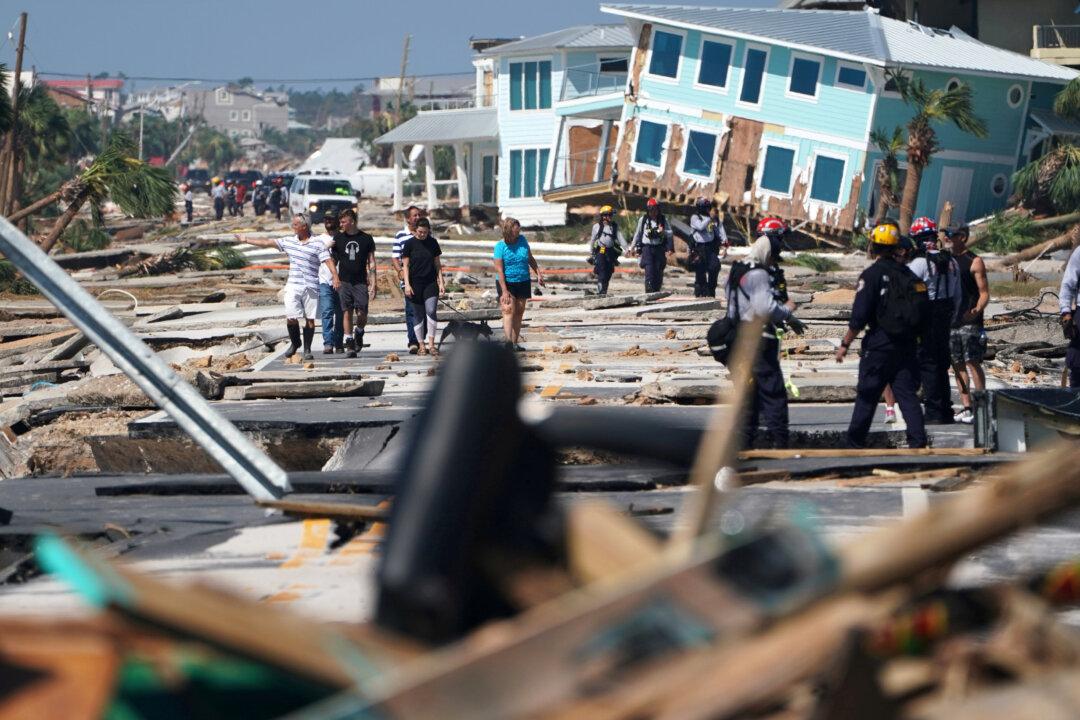FOUNTAIN, Fla.—After a fitful night of throbbing abdominal pain, curled up in a ball inside her hurricane-battered home trying to wish away the agony, 21-year-old Angelena Sawyer could barely function, let alone tend to her infant daughter.
Writhing in misery, Sawyer had no idea she was suffering from acute appendicitis. Neither did her parents nor her husband, Jacob Sibilia, fully realize the gravity of the situation as they coped with the larger crisis of surviving the aftermath of a natural disaster.





